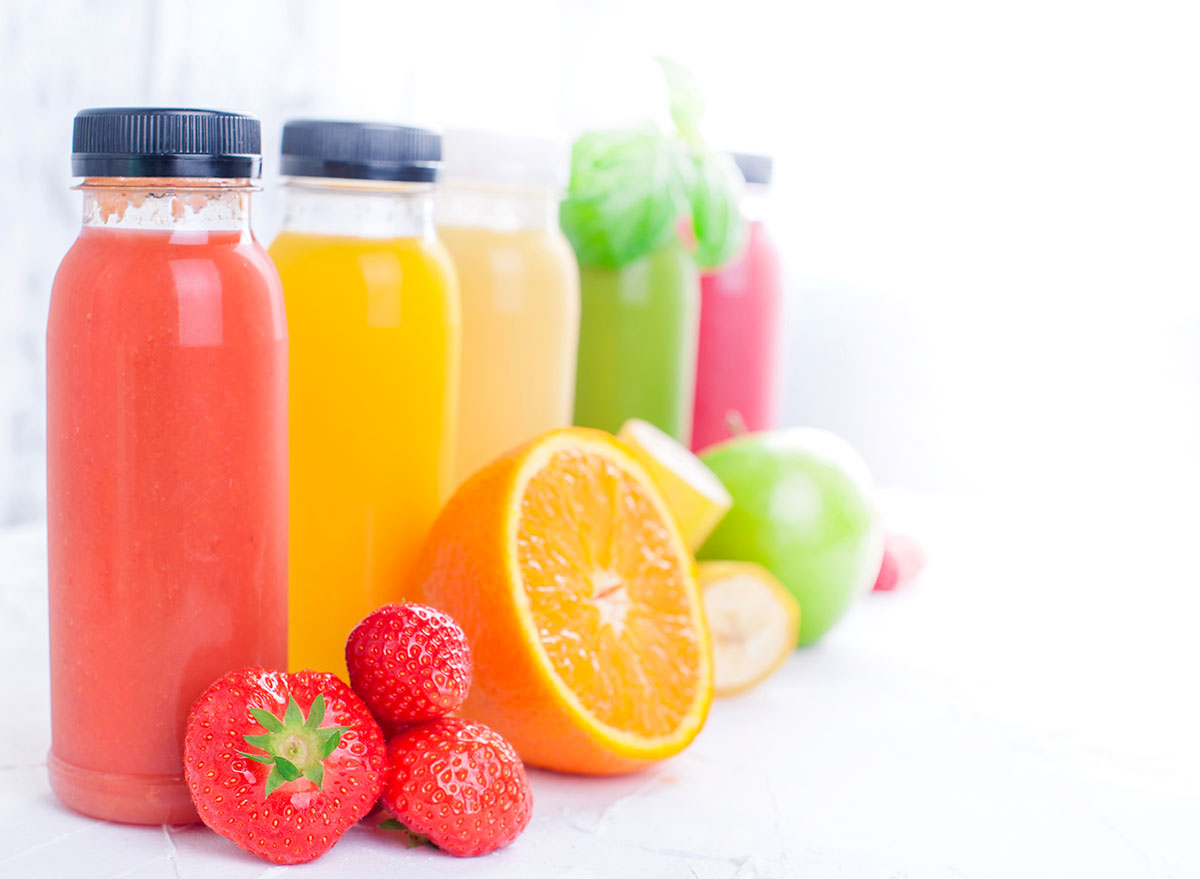Should I Avoid Drinking Fruit Juice? Some people believe that fruit juice is unhealthy because it is abundant in fructose, a natural sweetener. Reports about the dangers of high-fructose corn syrup (HFCS), a sweetener derived from maize starch that is linked to insulin resistance, obesity, type 2 diabetes, and elevated blood pressure, were the source of many of these beliefs.
While both fruit juice and high fructose corn syrup contain fructose, fruit juice is an entirely distinct animal with more health benefits than hazards. Moreover, fruit juice is not nutritionally devoid like sugary carbonated beverages. Except for fiber, it contains the same nutrients found in whole fruit. Here are defining of Should I Avoid Drinking Fruit Juice?

Should I Avoid Drinking Fruit Juice?
What to Know About Fruit Juice
The majority of Americans do not consume enough fruit; therefore, imbibing 100% fruit juice can provide a healthful dose. Typically, so-called “fruit drinks” contain a small quantity of juice and a substantial amount of added sugar, including HFCS.
A 6-ounce (3/4 cup) measure of 100 percent juice counts as one fruit serving. The majority of individuals should consume 1 to 2 cups of fruit per day, along with 2 to 3 cups of vegetables.
Soluble and Insoluble Fiber in Fruit
While fruit juice can satisfy your nutritional need for fruit, it should not be your only source of fruit. The soluble and insoluble fiber in whole fruit aids in digestion and offers other health benefits.
- Soluble fiber draws water from the intestines to ease bowel movements but also binds to fat and sugar to slow their absorption into the bloodstream.
- Insoluble fiber provides bulk to stools, normalizing bowel movements and preventing hemorrhoids. Fruit juice alone does not do this.
It’s the lack of fiber in fruit juice that can give it a poor rep. Without fiber to build bulk and make you feel full, you can easily consume more calories and fructose than you intended. This may affect your blood sugar and trigger weight gain.
Effects on Blood Sugar
Some individuals are hesitant to consume fruit juice for concern that it will increase blood sugar levels more than whole fruit. However, this is primarily due to the quantity of food you ingest.
A 2017 study published in the Journal of Nutrition Science found that 100% fruit juice had no effect on fasting blood glucose or insulin levels. And there were only minor differences between its GI and that of whole fruit.
If you have diabetes, you must limit your consumption of all fruits, whether whole or in liquid form. Consult your physician or a registered dietitian if you do not know how much fruit you can eat without influencing your blood sugar.
Fruit Juice Interactions
While consuming fruit juice in moderation can be beneficial for your health, certain citrus fruits can interfere with the effectiveness of pharmaceutical medications. There are no less than 50 medications used to treat everything from allergies and elevated cholesterol to HIV that are affected by grapefruit juice.
Grapefruit contains furanocoumarins, which inhibit an enzyme used by the body to metabolize certain medications. By inhibiting the metabolism of these medications, grapefruit can increase drug concentrations to potentially toxic levels.
Other citrus fruits, such as tangelos and Seville oranges, also contain concerning levels of furanocoumarins; therefore, it may be necessary to limit or avoid these fruits and their juices if you are taking certain medications. However, oranges, tangerines, lemons, and limes pose little risk.
Also read: How Much Sugar Is in a Can of Soda?
Buying Fruit Juice
When purchasing fruit juice, search for products that are labeled “100% fruit juice” and contain no added sugar. Even so, read the label carefully, as some beverages are blended and contain multiple fruits (and occasionally additional ingredients). To reduce costs, many exotic fruit beverages, such as pomegranate and acai, are blended with apple or grape juice.
- Avoid pasteurized juices. These have been super-heated to extend their shelf life. Pasteurization not only affects flavor but can also alter nutritional value.
- Don’t assume “not from concentrate” is fresh. Many such products are stored for up to a year in oxygen-depleted tanks. By the time they are finally bottled, sedimentation and age will affect their flavor and quality.
- Pay attention to the sell-by date. As a general rule, if a fruit juice has a long sell-by date, it has probably undergone some sort of processing, even if the label reads “100% pure.”
For the freshest and healthiest juice, you could always purchase a juicer or high-speed blender and prepare it yourself. High-speed blenders pulverize the produce, allowing you to retain the fiber typically lost in store-bought products.




